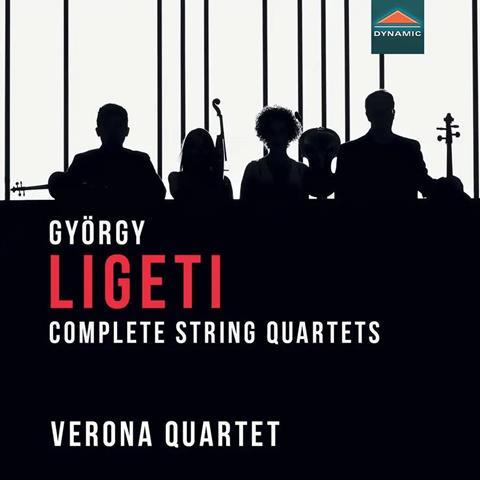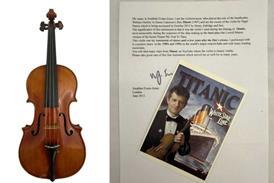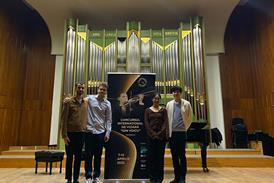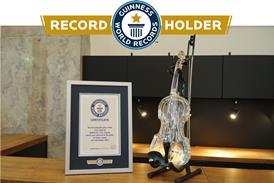A complete survey of a Hungarian master proves patchy

The Strad Issue: February 2024
Description: A complete survey of a Hungarian master proves patchy
Musicians: Verona Quartet
Works: Ligeti: String Quartets: no.1 ‘Métamorphoses nocturnes’, no.2; Andante and Allegro
Catalogue number: DYNAMIC CDS8010
What should be a revelatory cycle of the complete string quartet output of György Ligeti ends up being a strangely frustrating listen. Which is a shame, because this offering from the US-based Verona Quartet, currently ensemble-in-residence at Oberlin College, Ohio, starts off so well. The Verona players clearly know the Bartók-influenced First Quartet inside out, and their account is steely, passionate and projected with conviction and authority, from the brooding expectation of its tense opening to the grotesque ‘Tempo di valse’ and the hard-edged Presto and Prestissimo sections. It’s a thrilling ride, quite clinically clean at times (like that of the Viennese Minetti Quartet), but alert to Ligeti’s unconventional demands, and showing off all four players’ blisteringly impressive techniques.
Read: Verona Quartet named Oberlin Conservatory 2020-21 quartet in residence
Watch: Verona Quartet perform Janáček’s String Quartet no.2 ‘Intimate Letters’ I: Andante
In the far more avant-garde Second Quartet, however, the Verona sounds far less convincing. Dense, micropolyphonic textures come across as generic washes of sound, despite Ligeti’s minutely detailed internal markings, and there are moments of questionable ensemble when the players emerge from fast and violent playing into soft stasis (there is one particularly noticeable example about halfway through the first movement). With uneven tremolos and wavering sustained notes, it’s as if the blazing authority the Verona players displayed so confidently in the First Quartet has left them. The brief closing pieces – a tuneful, folksy 1950 Andante and Allegretto from Ligeti’s years under socialist realism – are illuminating additions, given velvet-smooth performances, but show little of the irrepressible imagination of the composer’s later music. Recorded sound is somewhat problematic too, with a background hum/hiss that comes and goes, and some distracting vocalisations picked up by the mics.
DAVID KETTLE



































No comments yet